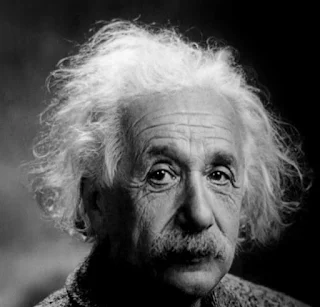Biography of Albert Einstein
Albert Einstein, born on March 14, 1879, in Ulm, in the Kingdom of Württemberg in the German Empire, was a theoretical physicist who is widely regarded as one of the most influential scientists of the 20th century. His work revolutionized our understanding of the fundamental laws of the universe. Here's an overview of his life and achievements:
 |
| Biography of Albert Einstein |
Early Life and Education of Albert Einstein:
Einstein grew up in Munich, Germany, in a middle-class Jewish family. He showed an early aptitude for mathematics and physics, although he had difficulties with the traditional education system, often clashing with authorities. He eventually moved to Switzerland, where he completed his education at the Polytechnic Institute in Zurich.
Annus Mirabilis Papers:
In 1905, often referred to as his annus mirabilis (miracle year), Einstein published four groundbreaking papers in the scientific journal Annalen der Physik. These papers laid the foundation for modern physics and included his work on the photoelectric effect (for which he received the Nobel Prize in Physics in 1921), Brownian motion, special relativity, and the famous mass-energy equivalence formula, \(E=mc^2\).
Einstein "General Theory of Relativity":
Einstein continued his research, eventually developing the general theory of relativity, which was published in 1915. This theory revolutionized our understanding of gravity, explaining it as a curvature in spacetime caused by mass and energy. It has been confirmed through numerous experiments and observations and remains a fundamental part of modern physics.
Ideas of Albert Einstein :
• Two things are infinite: the universe and human stupidity; And I cannot say strongly about the universe.
• The person who never made a mistake never tried anything new.
• Do not attempt to be a successful person. Rather be a human being who walks on values.
• Anger resides in the chest of fools.
• Human beings should see what is there, not what it should be.
• Respecting an authorized person without question is against the truth.
• There is a difference between stupidity and intelligence that there is a limit to intelligence.
• If you know all the rules of doing a task, then you can do that work better than anyone.
Albert Einstein as Humanitarian and Social Activism:
Einstein was not only a brilliant scientist but also a vocal advocate for civil rights, pacifism, and academic freedom. He spoke out against racism, segregation, and injustice, particularly in the United States. His humanitarian and political activities often overshadowed his scientific achievements in the later years of his life.
Later Life and Contributions:
In the 1930s, Einstein fled Nazi Germany due to his Jewish heritage, settling in the United States, where he accepted a position at the Institute for Advanced Study in Princeton, New Jersey. He became a U.S. citizen in 1940. During World War II, he urged the United States to develop an atomic bomb to counter Nazi Germany's potential development of such a weapon, though he later became an advocate for nuclear disarmament.
Albert Einstein death and Legacy:
Albert Einstein passed away on April 18, 1955, in Princeton, New Jersey, USA, at the age of 76. His contributions to science and humanity continue to be celebrated worldwide. His theories have shaped modern physics, and his name has become synonymous with genius. Beyond his scientific accomplishments, Einstein's advocacy for peace, civil rights, and education has left a lasting legacy, inspiring generations of scientists and activists.